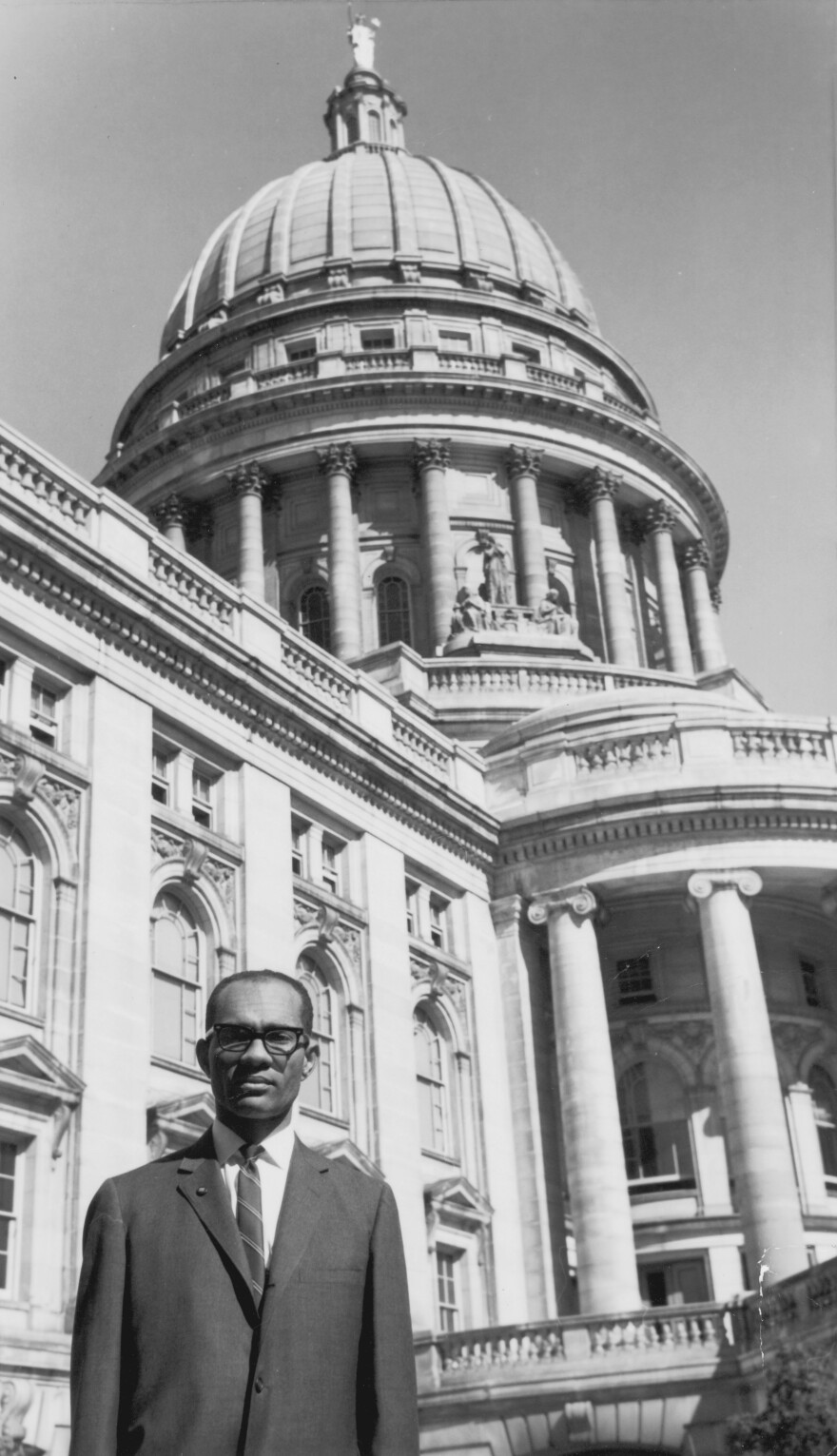It’s a common misconception that most LGBTQ history and activism occurred on the east and west coasts. But Wisconsin has actually been a national leader with its pioneering set of legislative victories.
In fact, Wisconsin became the first state in the nation to enact a gay rights bill in 1982 that banned discrimination in employment, housing and public accommodations based on sexual orientation. One year after, the state Legislature legalized all sexual relations between consenting adults, including same-sex relationships.
To this day, Wisconsin is the only state to elect three out members of Congress: Steve Gunderson, Tammy Baldwin, and Mark Pocan. These state-wide accomplishments were made possible by local LGBT legislators and elected officials, activists, businesspeople, everyday citizens — and their allies.

This history is chronicled in the second volume of Dick Wagner’s work on gay history in Wisconsin, Coming Out, Moving Forward: Wisconsin’s Recent Gay History. The book covers the challenges that LGBT Wisconsinites faced post-Stonewall, between 1969 to 2000, and is the second volume in Wagner's work on gay history in the state.
READ: We've Been Here All Along': Dick Wagner's New Book Examines Wisconsin's Early Gay History
While Stonewall sparked greater national attention to LGBTQ issues, Wagner says a small group of Wisconsin activists decided from the signal of Stonewall that they were going to try and change things in this state.
"It’s remarkable that we think a lot of LGBT history happened on the east or west coast, but Wisconsin was a leader here in the 1980s in a whole series of victories. I like to talk about us as a gay laboratory of democracy," he says.
"I like to talk about [Wisconsin] as a gay laboratory of democracy."
Wisconsin was the only state that had a gay rights bill for almost a decade. It was the leadership of the Madison, Milwaukee, and Dane County jurisdictions — who had passed gay rights measures before the state — that set the example for a statewide gay rights bill.
"In fact, they used that Consenting Adults bill push in the late '70s to actually show that both Republicans and Democrats could vote on a gay issue favorable to the community and not suffer political retribution," notes Wagner.
He notes that this atmosphere in the Legislature says something about the openness of our democratic system, which is part of Wisconsin's progressive tradition.
LGBT activists also established a dialogue with Wisconsin's religious communities across a variety of dominations to foster valuable religious allies to bolster support.

Cultural acceptance of the LGBT community was also accomplished through the state's gay media, which Wagner says was significant in trying to end the ignorance both within the community and the larger community statewide.
"[Gay People's Union] news out of Milwaukee was really an important state resource during the whole 1970s, so there was a key role there," he says.
Wagner himself was also an important player in several of these stories of Legislative change. He was co-chair of the Governor’s Council on Lesbian and Gay Issues, the first openly gay chair of a county board in Wisconsin, and a founder of the National Association of LGBT Elected Officials.
"I had to be careful about not making it too personal, but I didn't want to not include my own insights from being there at some of the tables where significant issues were decided," Wagner notes.
His role in Wisconsin's LGBT activism also helped with the research for this book, with 40 boxes of his own collection in addition to visiting other Wisconsin libraries and archives.
"Save your stuff. Donate it to an archive ... More places need to have archives where things can be saved, and so don't throw away our history is my strong admonition to folks in the community," he says.
Wagner wants to help end the erasure of LGBT history in Wisconsin because "our history is largely unknown."
"One of the reactions I had to the first book was, 'Oh, I never knew that.' And the reaction I think to the second book is, 'Oh, that was happening here?' ... And I'm enough of a Midwest chauvinist that I also want the folks on the coast to know about it. A lot of things happened here, too," Wagner explains.







